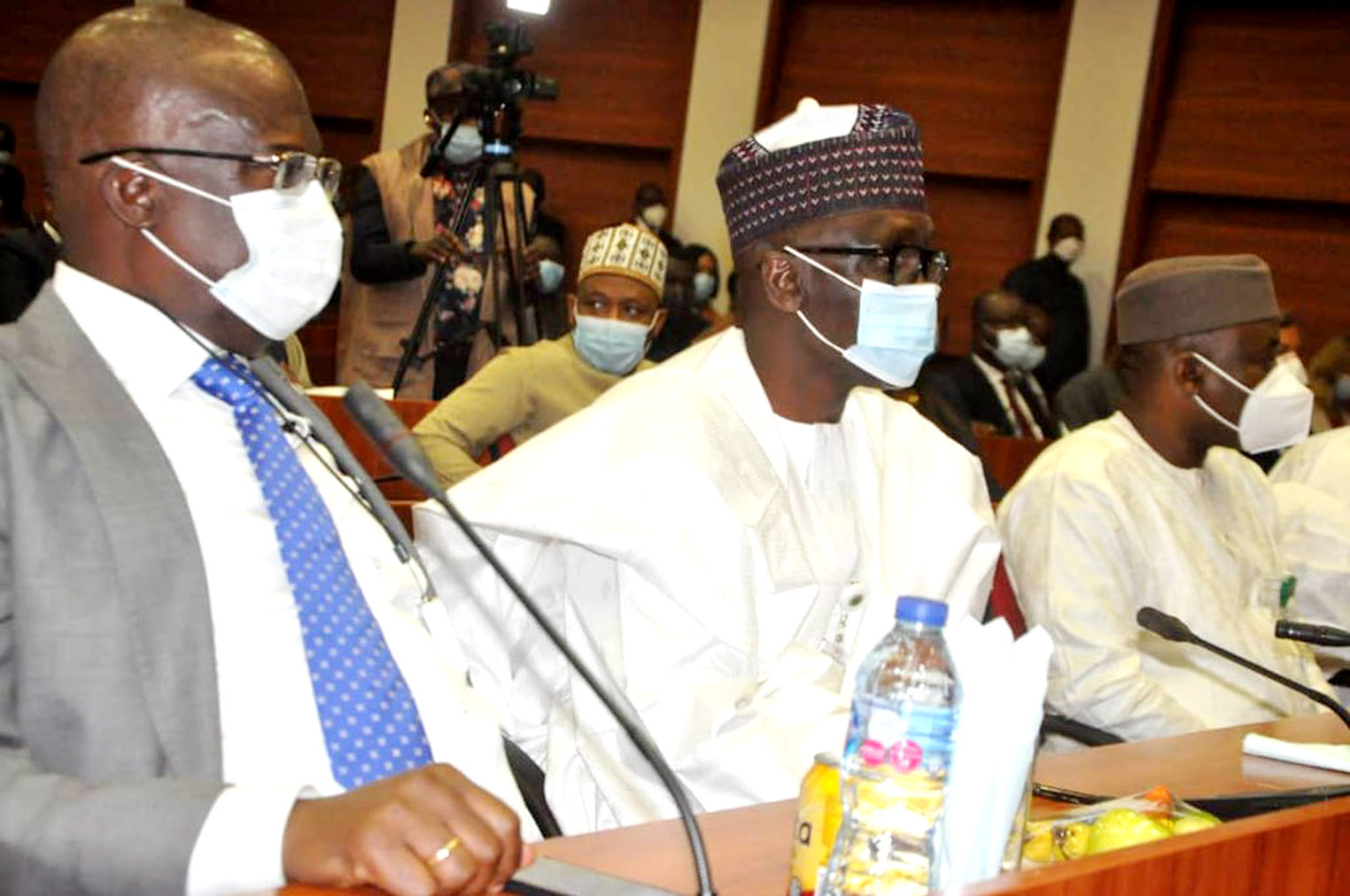Editorial
Beyond Covid-19 Vaccine Distribution

It is heart-warming that Nigeria will soon take its first delivery of 100,000 Coronavirus
(COVID-19) vaccine doses. But Director-General of the National Primary Health Care Development Agency (NPHCDA), Faisal Shuaib, hinted that the doses were limited to only 50,000, mainly vulnerable people, frontline staffers and health workers.
Out of the figure, only 1,766 doses have been allocated to Rivers State. States with higher confirmed cases would be given more doses. The NPHCDA said Kano, Lagos, Katsina, Kaduna, Bauchi, Oyo and Rivers would receive higher doses for health workers. In all, a total of 48,786 doses will be administered in the first phase. It is unclear what will happen to the remaining 2,428 out of the total 100,000 doses.
The Director, Logistics and Health Commodities, NPHCDA, Hajia Kubura Daradara, said the government would only release the vaccine to states prepared to administer them. Such states would be required to dispense the vaccine within five days to maintain its potency and only states which demonstrated commitment would receive the vaccine.
The Federal Government had earlier said the first batch of the vaccine would arrive between the end of January and February 2021 and had guaranteed their safety and effectiveness, claiming that the 100,000 doses of the expected vaccine were for only 50,000 Nigerians to be taken twice by each person at 21 days interval.
Nigeria’s Minister of Health, Dr Osagie Ehanire, had previously stated that the country would spend N400 billion to procure vaccines for the 70 per cent of Nigerians it planned to vaccinate, amid the rising spread of the virus in a most dreaded second wave. Whether that can materialise in the awkward economic situation is another kettle of fish entirely.
While we hail the government’s move to obtain the vaccine for the country, more are required to cater for a greater number of Nigerians. However, what is government’s level of readiness to bring in the vaccine? We are concerned because preparations were made for only four cold chains for the vaccine in Abuja, Kano, Enugu and Lagos with the entire South South and North East regions left out from the plan. If that remains, the vaccine might lose its efficacy on transit to those regions.
Although the federal authorities claimed they had procured 2,100 cubic ultra-cold chain facility in Abuja, the tropical nature of the country may be an impediment. Truth is Nigeria lacks adequate storage facilities to hold vaccines at the required temperature of minus 70/80 degrees Celsius needed for the Pfizer version of the COVID-19 vaccine approved by the World Health Organisation (WHO).
It is strongly advised that the government should first of all ascertain the potency of the Pfizer/BioNTech vaccine doses before their arrival. If that fails, then, upon arrival, they should be randomly picked and tested by the National Agency for Food and Drug Administration and Control (NAFDAC). The agency should certify them fit for use.
Again, granted the high insecurity ravaging the country, the necessity for heavy security presence from when the vaccine arrives at the airport to when it is administered on the recipients is imperative. In other words, there should be security personnel at every level of the chain. This, the Federal Government should factor in as well.
Interestingly, the Pfizer-BioNTech and the Moderna COVID-19 vaccines were introduced just before December, 2020. On the heels of that was the Oxford-Astra Zeneca’s COVID-19 vaccine. Recently, India added to the list by producing a version of the Oxford-Astra Zeneca’s COVID-19 vaccine known as Covishield vaccine, unveiled on January 3, 2021. This is in addition to Chinese vaccine with 50 per cent efficacy.
Altogether there are about five vaccine types for COVID-19 from different research groups globally ready for use. But the WHO favours the Pfizer-BioNTech COVID-19 vaccine. Based on that, the Presidential Task Force (PTF) and the Federal Government proposed the Pfizer-BioNTech COVID-19 vaccine for Nigerians. While deciding on a vaccine on WHO’s advice may be plausible, other vaccine options that better suit our oddities should have been explored as well.
As vaccines traverse Europe, a continent that has successfully immunized several millions of their populations, many African countries, including Nigeria, are faced with the challenge of securing adequate supplies of vaccine doses following high cost and inadequate storage facilities.
It, therefore, behoves the WHO to support African countries, particularly Nigeria, for free or highly subsidised vaccines. But the question is: how far can any donation go in a country of over 200 million people, considering its goal to vaccinate 40 per cent of the population by the end of 2021 and the remaining 30 per cent by the end of next year?
The foregoing indicates an urgent need for a home-grown solution to the pandemic. The best option is to produce our vaccine type the way India did. In the interim, let’s shop for one to withstand our terrain. We do not need to re-invent the wheel. Capacity building and making enormous savings on our foreign exchange are the way to go.
Editorial
Beginning A New Dawn At RSNC

Editorial
Sustaining OBALGA’s Ban On Street Trading

Editorial
AFCON ’25: Bravo, Super Eagles, But…

-
Maritime2 days ago
Nigeria To Pilot Regional Fishing Vessels Register In Gulf Of Guinea —Oyetola
-
Maritime2 days ago
Customs Declares War Against Narcotics Baron At Idiroko Border
-

 Sports2 days ago
Sports2 days agoGombe-Gara Rejects Chelle $130,000 monthly salary
-
Maritime2 days ago
NIMASA,NAF Boost Unmanned Aerial Surveillance For Maritime Security
-
Maritime2 days ago
NIWA Collaborates ICPC TO Strengthen Integrity, Revenue
-

 Sports2 days ago
Sports2 days agoTEAM RIVERS SET TO WIN 4×400 ” MORROW” …Wins Triple jump Silver
-

 Sports2 days ago
Sports2 days agoNPFL Drops To 91st In Global League Rankings
-

 Sports2 days ago
Sports2 days agoNSC eyes international hosting rights

